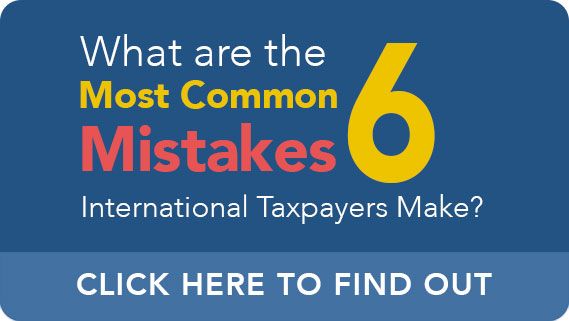Accountant for U.S. Expat Tax Return Preparation
American citizens living abroad should take care not to forget tax season back in the U.S.; even after moving to another country, all U.S. citizens are still required to provide the Internal Revenue Service with a tax return and the balance of their tax obligation each year. While living in a foreign country can complicate the tax return process, there are some useful tax advantages to life as an expatriate.
Unless you have extensive knowledge of the myriad codes and laws governing tax returns for expats, you will probably benefit from the input of a professional. Ted Kleinman, CPA, and the team at U.S. Tax Help have decades of collective experience with international taxation planning and preparation, making them an excellent resource for those navigating the treacherous waters of the U.S. tax system. To set up a consultation or learn how the accountants at U.S. Tax Help can assist you with your return, visit us online or call (541) 362-9127 today.
Filing a Tax Return as an American Expatriate
Expats face the same basic tax requirements as domestic citizens, with some critical differences in certain aspects of the process. Though this makes the entire endeavor much more complex, the differences tend to work out in an expat’s favor, at least financially. Below are some of the most notable idiosyncrasies to look for when filing as an expat.
Tax Return Filing Deadline for U.S. Expats
Generally speaking, the tax return filing deadline for expatriates is the same as for any other citizen: April 15. However, any U.S. citizen or resident living overseas is eligible for an automatic two-month extension for both filing their return and paying any taxes due to the IRS. It should be noted, however, that while no penalties will be assessed until after the extended June 15 deadline, interest will begin to accrue on your tax obligation starting on April 15.
Certain specific reporting requirements that tend to affect expats – the Report of foreign Bank and Financial Accounts (FBAR) is one example of this – have their own deadline extensions; in the case of the FBAR, you will automatically get a six-month extension if you miss the April 15 deadline, making your actual deadline October 15.
Additional Forms Expats Have to File
Any number of professional and financial entanglements can push an expat’s tax return into even more convoluted territory, but there are two main forms that Americans living abroad will likely have to submit in addition to their usual return. One of these is the FBAR, mentioned above, which involves disclosing any significant financial holdings in foreign bank accounts. The other is related to the Foreign Account Tax Compliance Act, or FATCA.
The requirements for filing an FBAR are relatively simple. If you are a U.S. citizen, resident, or corporation, you must file a report if you have one or more accounts outside the United States valued at a combined $10,000 or more at any time during the calendar year. If this applies, you will need to file an FBAR electronically through the Financial Crimes Enforcement Network (FinCEN), a part of the U.S. Treasury Department, using FinCEN Form 114.
The reporting thresholds laid out in FATCA are somewhat more relaxed, but they include the total value of all assets, including property. Single taxpayers living abroad must file Form 8938 with the IRS if the total value of their assets is more than $200,000 at the end of the year or more than $300,000 at any point during the year; these thresholds are doubled for married persons filing a joint income tax return.
Tax Exemptions for U.S. Citizens Living Overseas
There are a few popular exemptions, exclusions, and deductions used by expats to lessen their tax obligation to the IRS, sometimes significantly. Chief among these is the foreign earned income exclusion (FEIE), which allows you to ignore a portion of your overseas earnings when determining what you owe the government. This only applies to active earnings – those from providing goods or services, rather than collected passively as rent or something similar. The cap for the exclusion is adjusted for inflation, meaning it rises every year; for 2019, the maximum amount you can exclude is $105,900.
Additional tax breaks are available if you have paid for housing in a foreign country, though there are certain qualifications that must be met. You will be required to prove to the IRS that you are truly a foreign resident by passing either the bona fide residence test or the physical presence test, both of which look at where you spent time over the course of the calendar year. A knowledgeable accountant should be able to explain these advantages and requirements in greater detail.
Specialized Accountants Available to Help U.S. Expats with Tax Returns
If you have been living abroad as a U.S. citizen and need to square your tax debt with the IRS, don’t rely on shoddy information or guesswork. Turn to the professionals who can help make sure you pay the absolute minimum while avoiding penalties and fees. The team at U.S. Tax Help is ready and willing to guide you through this complex process. To set up an initial consultation or learn more about all our services, visit us online or call (541) 362-9127 today.
